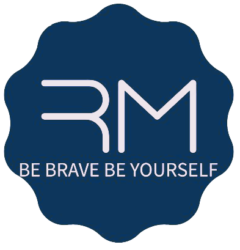
Zero-based thinking (ZBT) is a concept popularized by Brian Tracy, a well-known motivational speaker and self-development author. The idea behind zero-based thinking is to periodically re-evaluate all aspects of your life and business from a fresh perspective as if you were starting from scratch. This means questioning the status quo and making decisions based on current realities rather than past commitments.
Key Principles of Zero-Based Thinking
Start from Zero: Imagine that you are starting with no pre-existing assumptions or commitments. This helps you objectively assess your current situation without being influenced by past decisions or investments.
Ask the Key Question: The central question of ZBT is: “Knowing what I now know, would I still make the same decision?” This can apply to various aspects of your life and work, such as relationships, projects, investments, or strategies.
Cut Losses: If the answer to the key question is “no,” ZBT encourages you to take immediate action to change direction or eliminate the decision, regardless of the past effort or resources invested. The idea is to avoid the sunk cost fallacy, where you continue with a decision because of past investments rather than its current or future value.
Focus on the Present and Future: ZBT emphasizes making decisions based on current information and future potential, not past efforts or expenditures. This helps in making rational, forward-looking choices that align with your goals and values.
Applications of Zero-Based Thinking
Business Decisions: Re-evaluate ongoing projects, strategies, and investments. If certain initiatives are not yielding the desired results, consider reallocating resources to more promising areas.
Personal Relationships: Assess your relationships with colleagues, friends, and even family. If a relationship is draining and not adding value to your life, consider whether it is worth continuing or needs to be redefined.
Career Choices: Periodically assess your career path and job role. If you find that your current position is not fulfilling or aligning with your long-term goals, think about making a change.
Financial Investments: Regularly review your investments. If certain investments are underperforming, think about redirecting your funds to more profitable opportunities.
Benefits of Zero-Based Thinking
Improved Decision Making: Helps you make more rational and objective decisions by focusing on current and future value rather than past efforts.
Enhanced Flexibility: Encourages adaptability and willingness to change course when necessary, which can lead to better outcomes.
Resource Optimization: Helps in reallocating time, money, and effort to more productive and beneficial areas.
Increased Clarity and Focus: By questioning existing commitments, you can gain a clearer understanding of what truly matters and align your actions with your goals.
Example
Imagine you started a business project two years ago, investing significant time and money. However, the project has not been as successful as anticipated. Using ZBT, you would ask yourself: “Knowing what I now know about the market and the project’s performance, would I still start this project today?” If the answer is no, ZBT suggests considering whether to discontinue the project and focus on more promising opportunities, despite the previous investment.
Zero-based thinking is a powerful tool for personal and professional growth. By periodically reassessing your decisions and commitments with a fresh perspective, you can make more informed, objective, and effective choices that better align with your current goals and circumstances.


 Title
Title  Date
Date Category
Category